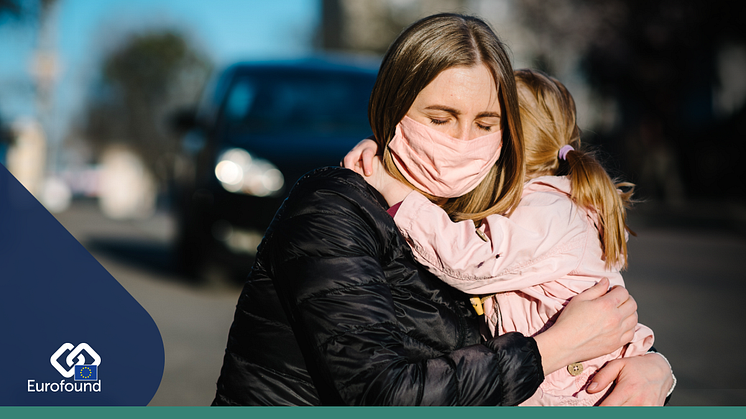
News -
Sweden not spared from economic impact of COVID-19 crisis
One in five people (21.3%) in Sweden report a worsening of their financial situation during the COVID-19 crisis, and a similar proportion (22%) believe their situation will deteriorate over the next three months, according to Eurofound’s Living, working and COVID-19 survey. The survey findings reveal that Sweden has not been immune to the economic impact of the COVID-19 crisis, with 10.9% of respondents reporting loss of employment and 20.7% reporting a reduction in working hours (although this the lowest level in the EU).
These findings are some of the first results from Eurofound’s Living, working and COVID-19 online survey, which amassed over 85,000 respondents in the month of April. The survey looked at various aspects of life across Europe during the COVID-19 pandemic including indicators of quality of life, working life and financial situation. The survey findings show that 21.3% report a worsening of their financial situation – significantly below the EU27 average of 38.2% – but nearly double the level reported in neighbouring Denmark. This is likely to have been impacted by the fact that one in ten people report losing employment during the pandemic, either temporarily and permanently, and 20.7% of respondents report a reduction in working hours.
The survey results show that over 40% of respondents in Sweden started teleworking as a result of the pandemic, which is the seventh highest level across the EU. This is compared to just 11.7% who had teleworked previously. Generally, in countries where more people began working from home due to the pandemic, fewer workers reported that their working time decreased. The findings show that work-life balance has remained largely intact despite the large proportion shifting to new working arrangements. The survey findings show that Sweden reports the lowest share of people who had to work in their free time to meet work demands (in the previous two weeks) at 8.7% – significantly below the EU27 average of 17.5%. Likewise, Sweden also has the smallest share of respondents who report that their family responsibilities prevented them giving the time they needed to their job. This is in direct contrast to the experience in many other EU Member States, particularly those with strict confinement measures, where work-life balance issues were widespread.
Quality of life and well-being appear to have remained stable, and well above EU averages, in Sweden during the first weeks of the COVID-19 pandemic. Swedish respondents report among the highest levels of life satisfaction and mental well-being in the EU. Furthermore, the level of trust in national government, captured in April, is above the EU27 average of 4.8 at 6.4 (on a scale of 1-10), and trust in the healthcare system is 7.3 – among the highest in the EU. Despite more than one in ten (11%) expecting to lose their job in the coming months, it is positive to see that optimism for the future remains strong in Sweden, with over two thirds (68%) feeling optimistic for their future – the third highest level in the EU.
Eurofound has been monitoring and reporting on living and working conditions in Sweden, in comparison to other EU Member States, since Sweden joined the EU in 1995.
Read more:
Publication: Living, working and COVID-19: First findings – April 2020
Topic page: COVID-19
Country profile: Living and working conditions in Sweden





